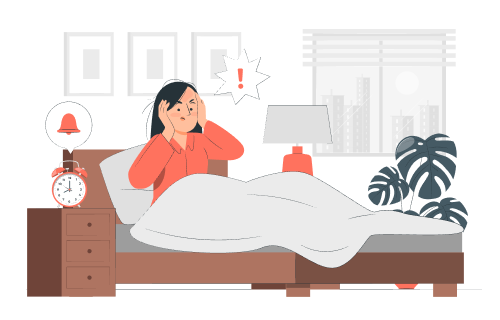Depression affects people with symptoms that disrupt daily functioning and quality of life. This mental health condition goes beyond temporary sadness or mood changes. Understanding depression can help individuals recognize symptoms and seek appropriate treatment options. Here is more information on this condition, including its causes, how it affects sleep, and the treatment options available:
What Is Depression?
Depression is a mental health disorder characterized by persistent feelings of sadness, hopelessness, and loss of interest in activities. The condition affects how individuals think, feel, and handle daily activities. Clinical depression differs from normal emotional responses to life challenges.
Mental health professionals diagnose this condition when symptoms persist for at least two weeks and significantly impair functioning. The condition can range from mild to severe forms. Major depressive disorder is the most severe type of clinical depression.
What Causes It?
Depression results from multiple factors working together rather than a single cause. Biological factors include changes in brain chemistry, hormones, and genetics. A family history increases the risk of developing the condition.
Environmental factors may contribute to the development of depression. These include traumatic life events, chronic stress, and significant life changes. Medical conditions such as chronic illness, certain medications, and substance abuse can trigger depressive episodes. Social factors also play a role in depression onset, with isolation, relationship problems, and lack of social support increasing vulnerability.
What Are the Symptoms?
Emotional symptoms include persistent sadness, feelings of worthlessness, and loss of interest in previously enjoyed activities. Individuals may experience guilt, irritability, and hopelessness about the future. Physical symptoms consist of fatigue, changes in appetite, and unexplained aches or pains. Cognitive symptoms affect concentration, decision-making abilities, and memory function.
Behavioral changes become apparent in daily routines. Individuals may withdraw from social activities, neglect personal hygiene, or experience changes in work performance. Thoughts of death or suicide require immediate professional attention.
How Can Depression Disturb Sleep?
Depression may impact sleep patterns through various mechanisms. Some individuals with this condition experience insomnia, characterized by difficulty falling asleep or staying asleep. Early morning awakening is also common in depressive episodes.
Sleep architecture changes occur in depression, affecting the quality of rest. Rapid eye movement (REM) sleep patterns become disrupted, leading to less restorative sleep. This creates a cycle where poor sleep worsens depressive symptoms. Addressing sleep problems forms part of comprehensive treatment approaches.
What Are the Treatment Options?
Advanced treatment options exist for treatment-resistant depression. Transcranial magnetic stimulation (TMS) uses magnetic fields to stimulate specific brain regions. This non-invasive procedure shows effectiveness when traditional treatments prove insufficient.
IV ketamine therapy offers rapid relief for severe cases. This treatment works differently from traditional antidepressants by targeting specific brain receptors. Spravato, a nasal spray form of ketamine, provides another option for treatment-resistant cases.
Vagus nerve stimulation (VNS) is another advanced intervention for severe depression. This treatment involves implanting a device that stimulates the vagus nerve. VNS is typically reserved for cases where other treatments have failed.
Feel Better and Sleep Better
Depression is a treatable medical condition with multiple therapeutic options available. Early intervention helps improve outcomes and reduces the impact on daily functioning. Professional evaluation can determine the most appropriate treatment approach for individual circumstances.
Sleep disturbances may improve as treatment progresses. Addressing both depression and sleep problems simultaneously can enhance recovery outcomes. If you’re experiencing symptoms of depression, consult with a mental health professional to explore treatment options that can help restore your well-being.

